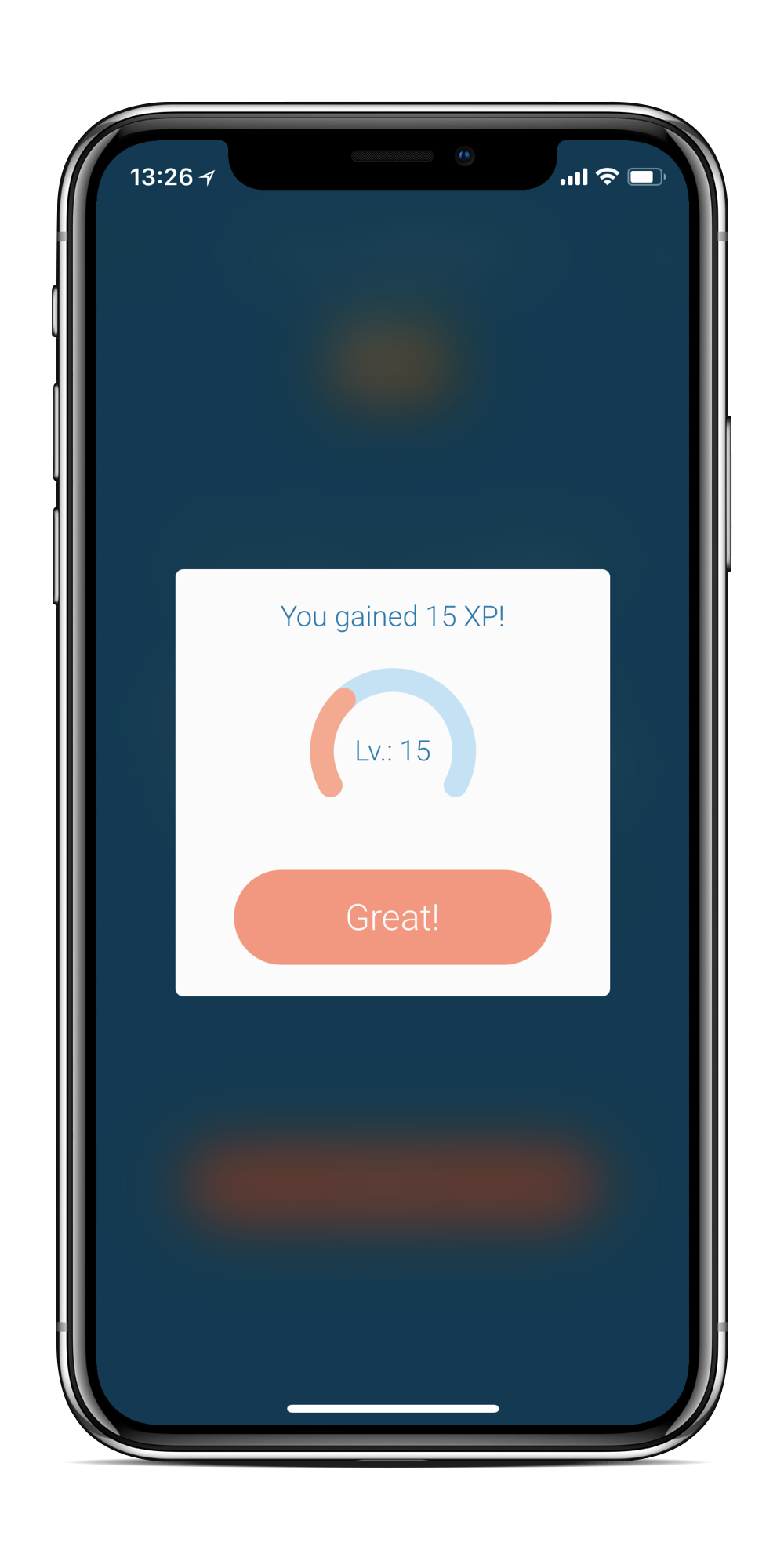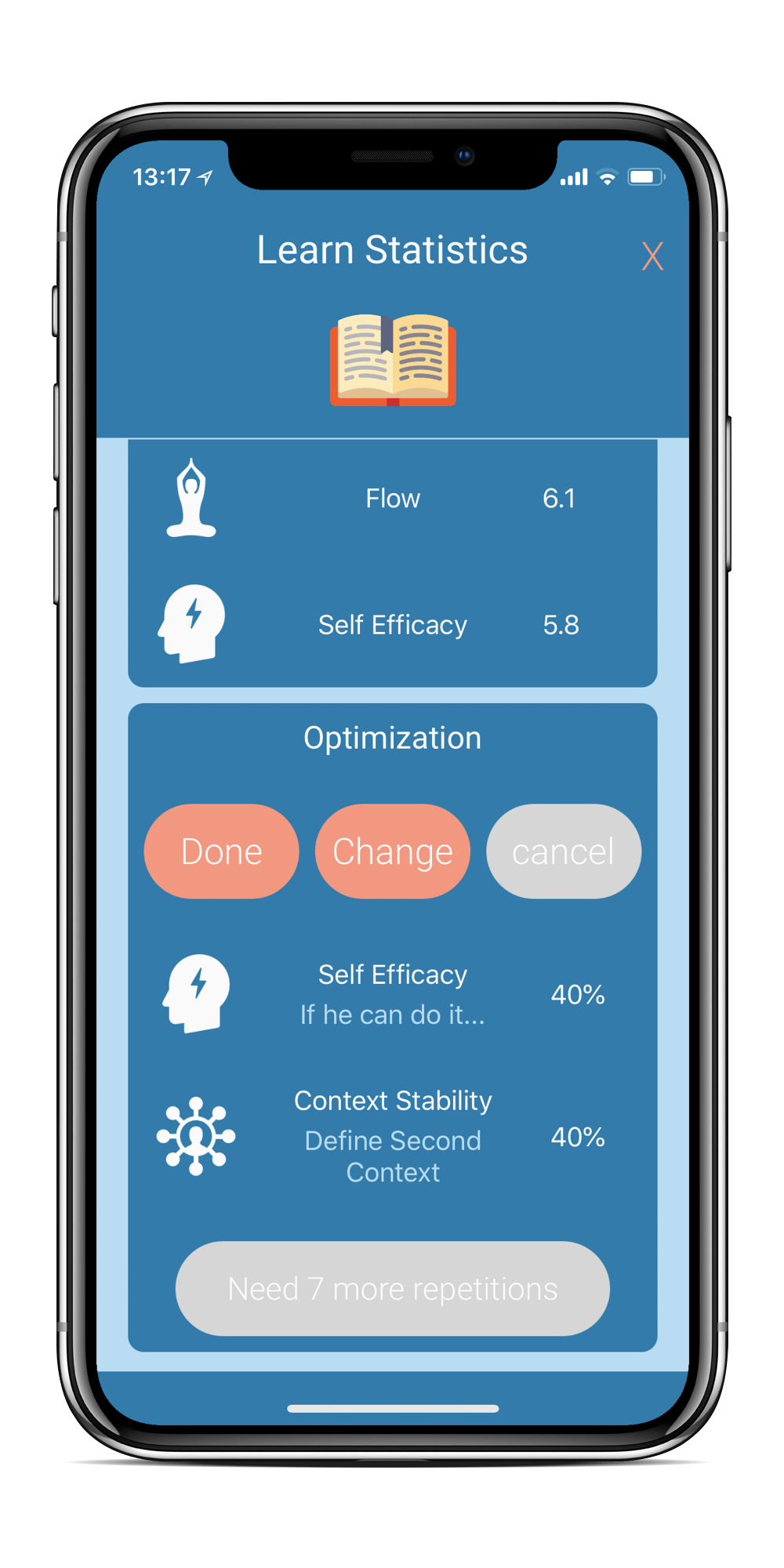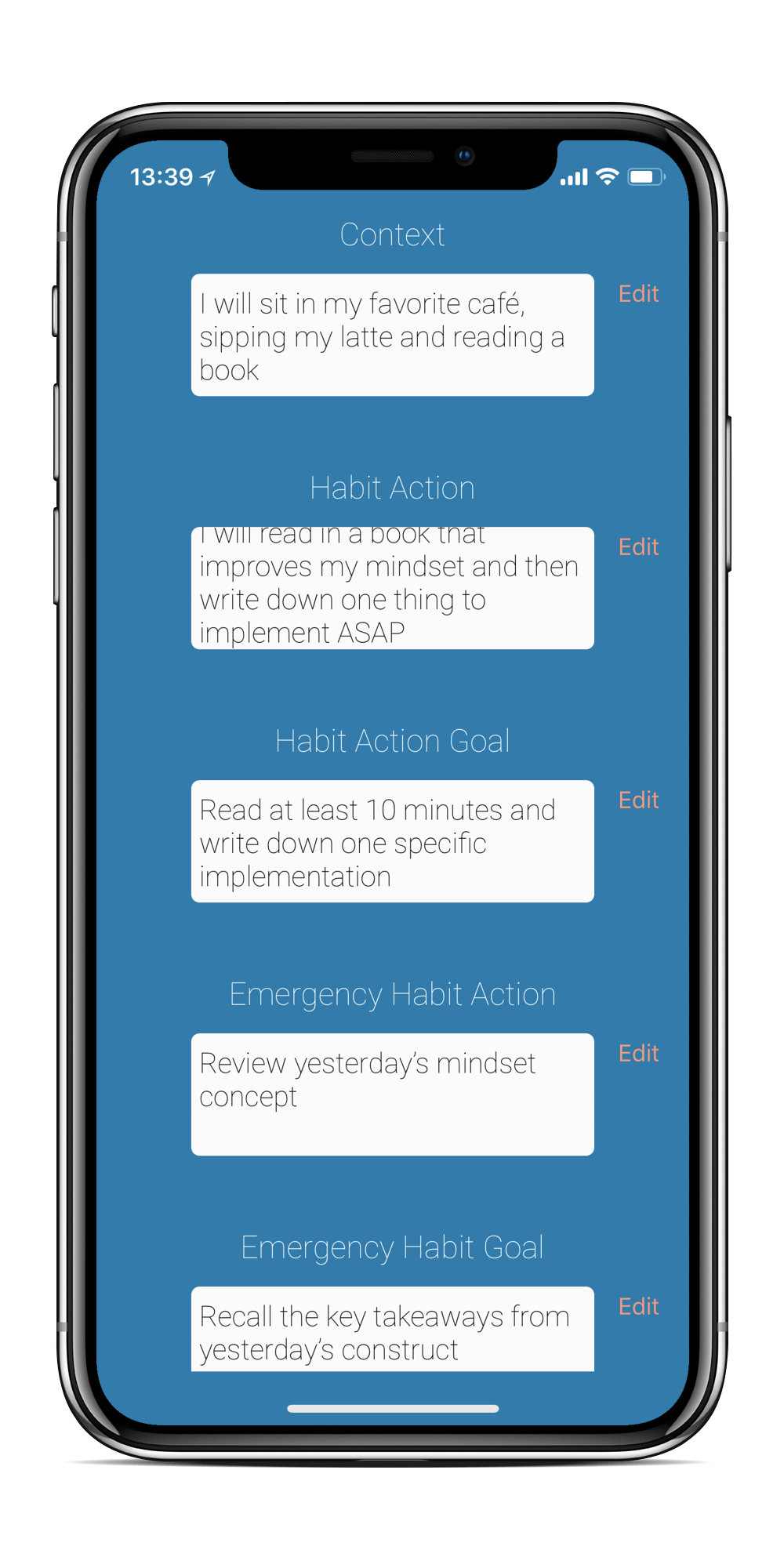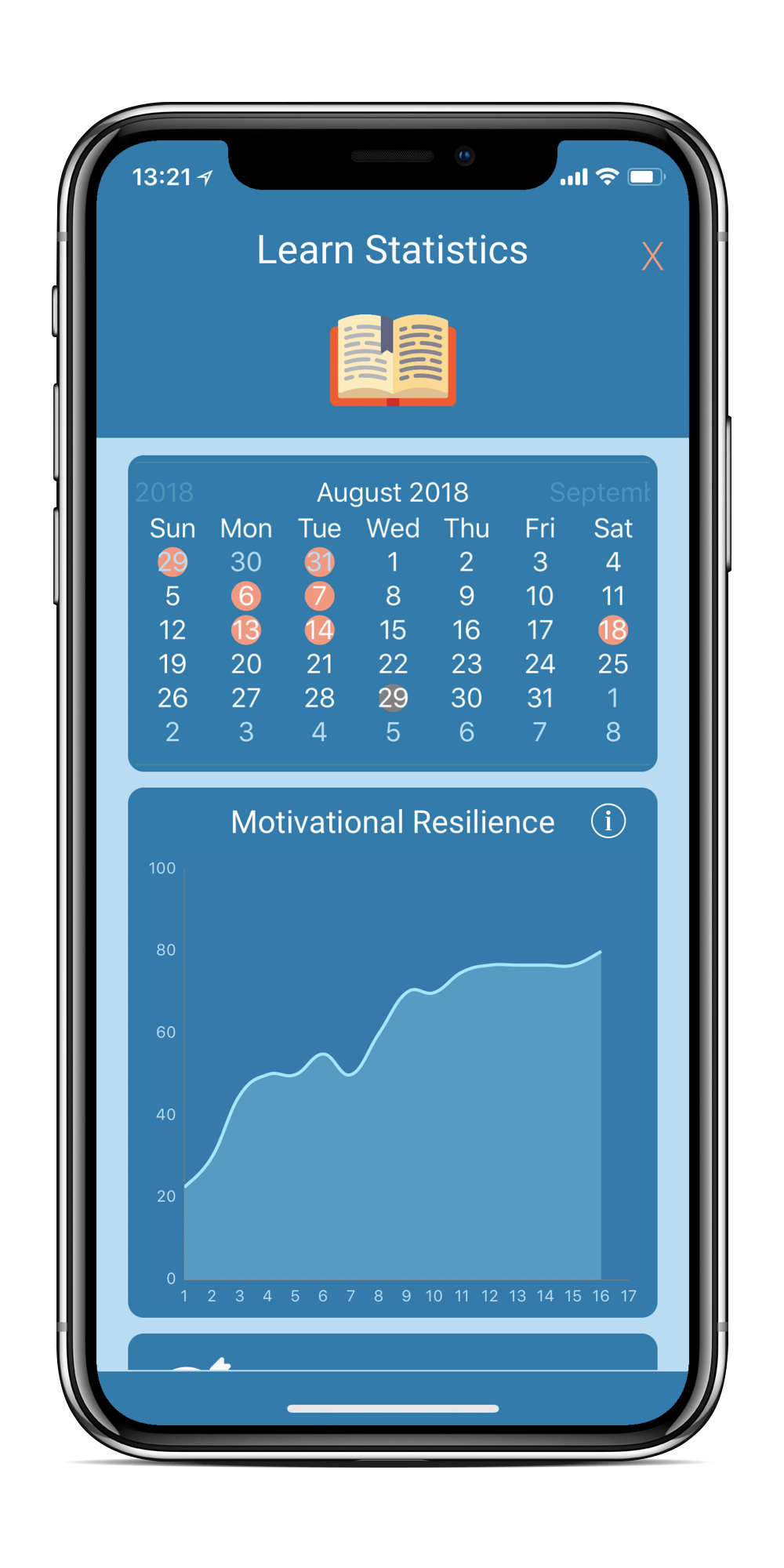Grow is a mobile app that uses psychometry to help you build your individual habits
Grow is a mobile app that uses psychometry to help you build your individual habits
How Psychometric Habit Building Works
1. Engineer Habit
When you want to build a house, you need to have a solid foundation. The same is true for habit building. You need a well thought out habit with clear goals and properties as a solid foundation to build your habit and get your desired results. 80% of habits that are thought out on the fly are doomed to fail because of poor design. Grow guides you through an easy process to engineer a rock solid habit. Watch a youtube tutorial here.
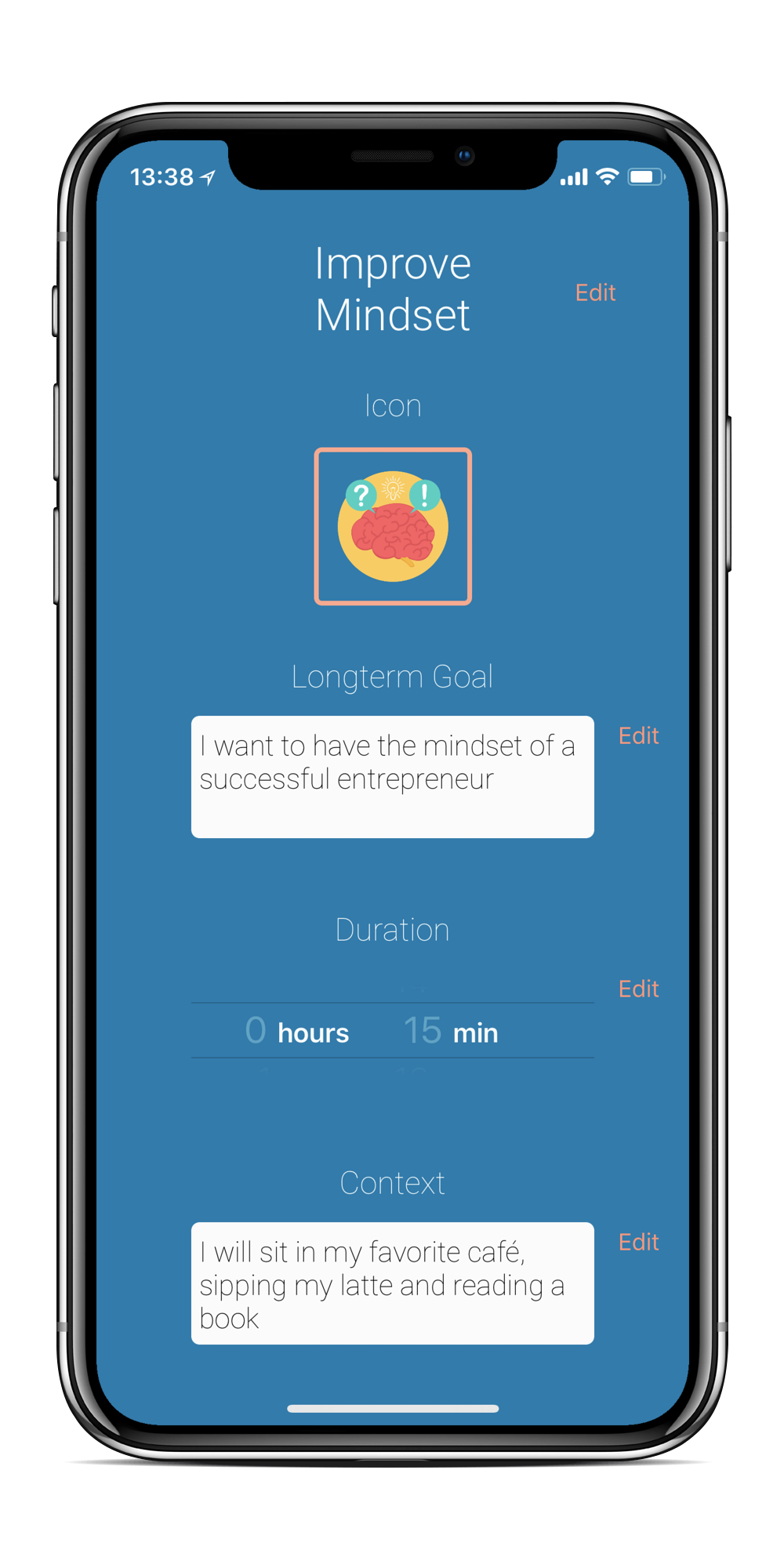
2. Answer Questions
After each habit repetition, Grow asks you to answer questions about your experience during the habit. The questions are altering and measure different psychological constructs related to your habit. Even though they might appear like simple questions, these questions are in fact well thought out psychological instruments that are scientifically tested. Don’t worry, it takes just a minute to answer these.
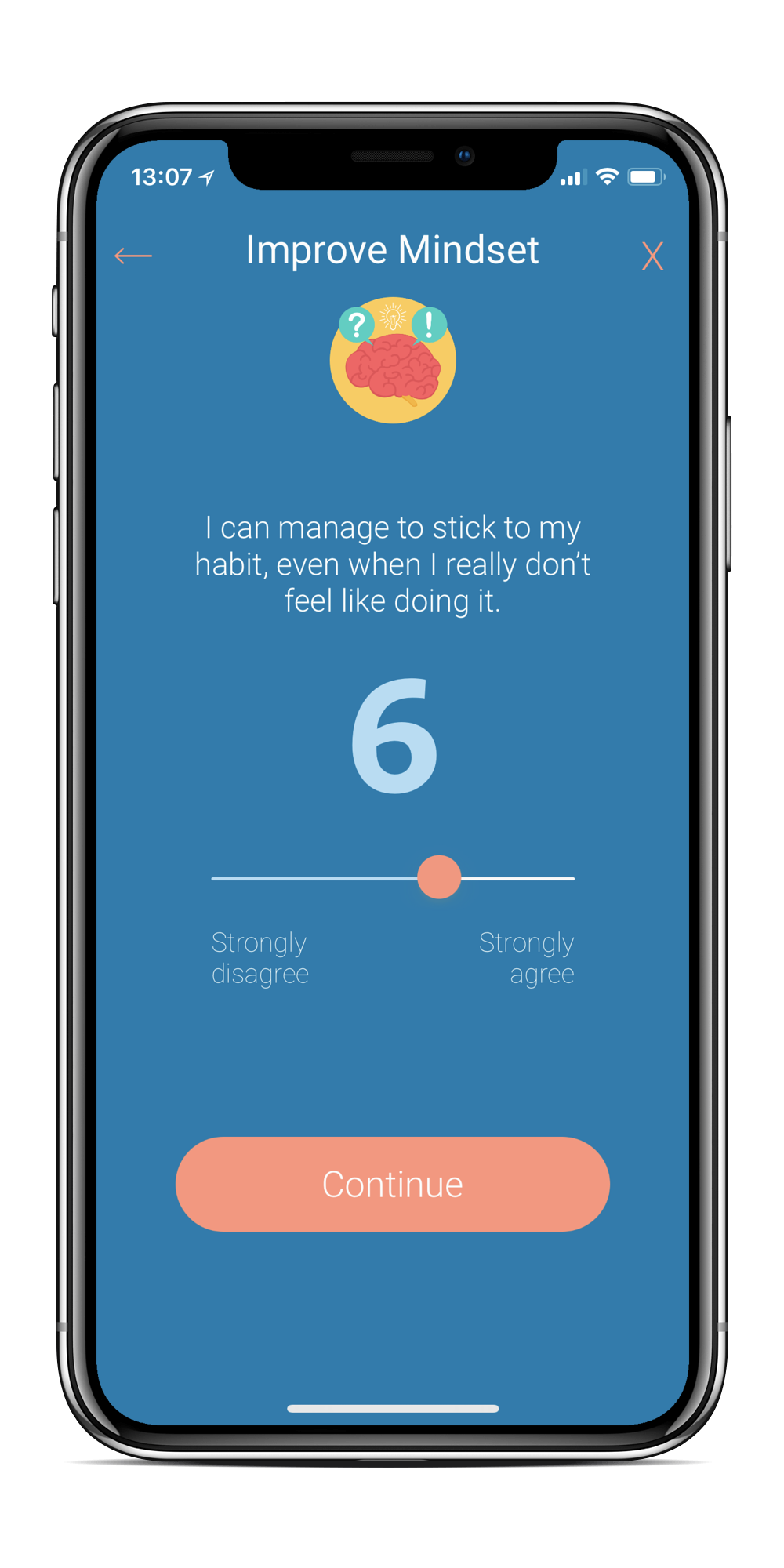
3. Get Psychometric Feedback
Oftentimes, it’s hard to ‘feel’ the growth of a habit – especially in the beginning. Grow analyzes your data and gives feedback about your habit strength and a bunch of other important metrics. This way, you can see how your habit grows and make sure you are developing even though you are not ‘feeling it’ right away. Furthermore, you can find weak spots with the optimization feature and strengthen your habit even further.
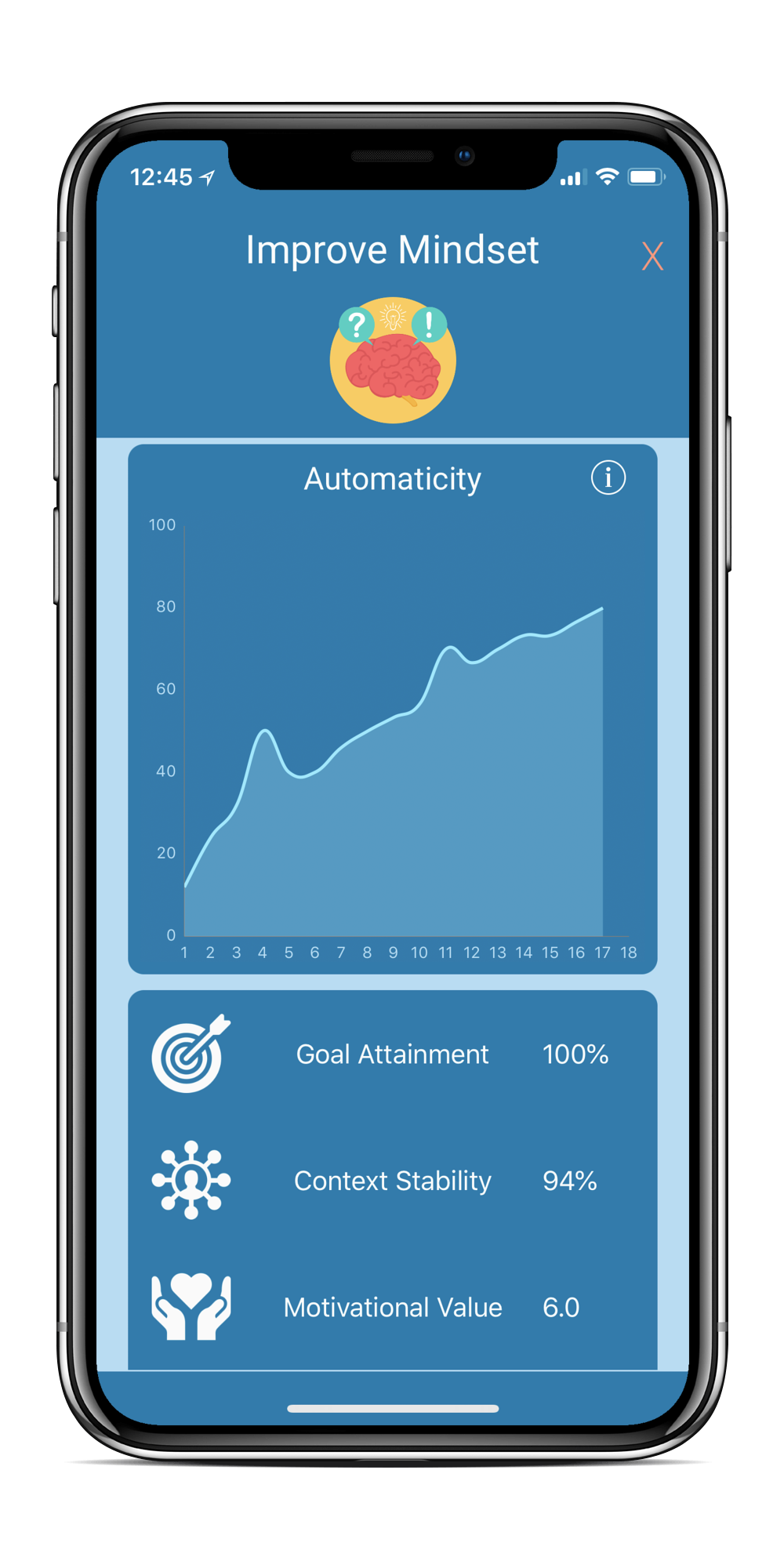
Grow Stories

I Finally Learned Serbian
Here is my, the creator’s, personal Grow Story.
I have a Serbian last name. I don’t…sorry…I didn’t know how to speak it, though. Growing up in Germany, I always avoided the somewhat difficult to pronounce words. Could have been bilingual – damn!
Fast forward 20 years. When I was 28, I still could not communicate with my dad in his mother tongue. I tried many times to really learn it, but dropped all books after 2-3 days of binge learning.
When I started to research app based learning habit development in students, I decided to go along with the participants and build a Serbian learning habit. It was pretty simple: Every day, I would watch a 3-6 minute news video with subtitles in Serbian. I would look up words I could not understand and that was my habit.
In the first 2-3 weeks, I needed to push myself a little to actually do it. After that however, it really became a part of my day and it does not take any willpower to do it anymore.
After 6 months, I experienced the magic. My dad came to visit us in Germany and brought some Serbian friends. They only knew Serbian. I remembered how I felt like when I was with a group of Serbians. I didn’t understand a word and felt like an alien. However, that day I understood 80% of the conversation! When something was unclear, I could easily ask for clarification and explain myself in simple words. I was finally a part of the group. I could finally speak Serbian.
My father recognized my amazing development and the long grind in the most appreciative manner he is capable of [Serbian accent]: ‘You learned littal, eh?’

I Optimized My Learning Process to Work as a Consultant Alongside My Academic Studies
In the second semester of my studies I joined the student consultancy/junior enterprise of the Leibniz University of Hanover. I wanted to learn and improve myself by working on consulting projects besides the theoretical lectures in the university. My attitude is ‘always perform at a high level and overdeliver’. As a student of psychology I belong to the so called ‘exotics’ in the consultancy department, which means that I had to acquire many economic basics. In my opinion the key for success in any area of life is the motivation to learn new stuff. That’s why I always try to learn many things in a short amount of time in the most efficient way possible.
I participated in Marco’s research, because I saw the possibility to optimize my learning process. At this time I rather worked on projects than studying for university. So I decided to sum up the daily lessons in university – that was my habit. And it was pretty annoying. I really had to force myself every day to start the habit, although summing up a lesson on one page isn’t that much. Sometimes I even regretted signing up for study. But the habit became a neutral part of my day over the time. Actually, I didn’t notice when it became less annoying. At the end it was just a normal part of my day – nothing more or less.
I quickly realized, that the method of habit building actually does raise the efficiency of my productivity. After the study I used the method to build several habits in different areas. The funny thing is: When habit building becomes a habit for you, the habit building itself gets less difficult. I even structured my free time with habits. Today I’m able to read enough books, do sports, perform as a member of the executive board of the junior enterprise and delivering projects…oh and of course to study full time.

I Finished My Term Paper Two Months Before Deadline
I think everyone knows it when people don’t believe in you because they think you set your goals too high so you can’t achieve them. These doubts motivated me. I started to study psychology a year ago as it has always been my dream.
At that time, I was already very ambitious and always got my tasks done in time. Then I heard about Marco’s habit study and wanted to develop my skills even further, because studying was more stressful than I anticipated…
During the first weeks when I started using the app, it was challenging and I often had to push myself to do it. However, after a few days I realized what great progress I made writing my term paper and was thrilled. Especially in the beginning, I did not really notice the progress. But I builds up almost imperceptibly over time and is thus even more exiting when you finally take note of it.
I integrated my 20 minute habit into my day-to-day life and I’m really happy about it. With the app I could get done small parts of my studies every day which actually led to me finishing my term paper two months before deadline.
I could build a habit in short time and with little discipline, which made studying much easier and relaxed since then. Great experience!
Scientific Proof
Yup, Grow is not only built on the latest psychological research, it’s also been tested in a longitudinal study with students building new learning habits (the paper is publicly available here). Did it work? Short answer: Yup. But check the stats yourself.
Around 100 students tested Grow for 6 weeks. They answered questions after each habit repetition that were then used to calculate different psychometric scores (range 1-10).
Automaticity shows how strong a habit has become. It increased considerably over the 42 habit repetitions.
Motivational interference is an indicator for how motivationally bulletproof the habit is. A low value means the habit is resistant to Netflix, your phone and other sources of procrastination. Check out this neat decrease!
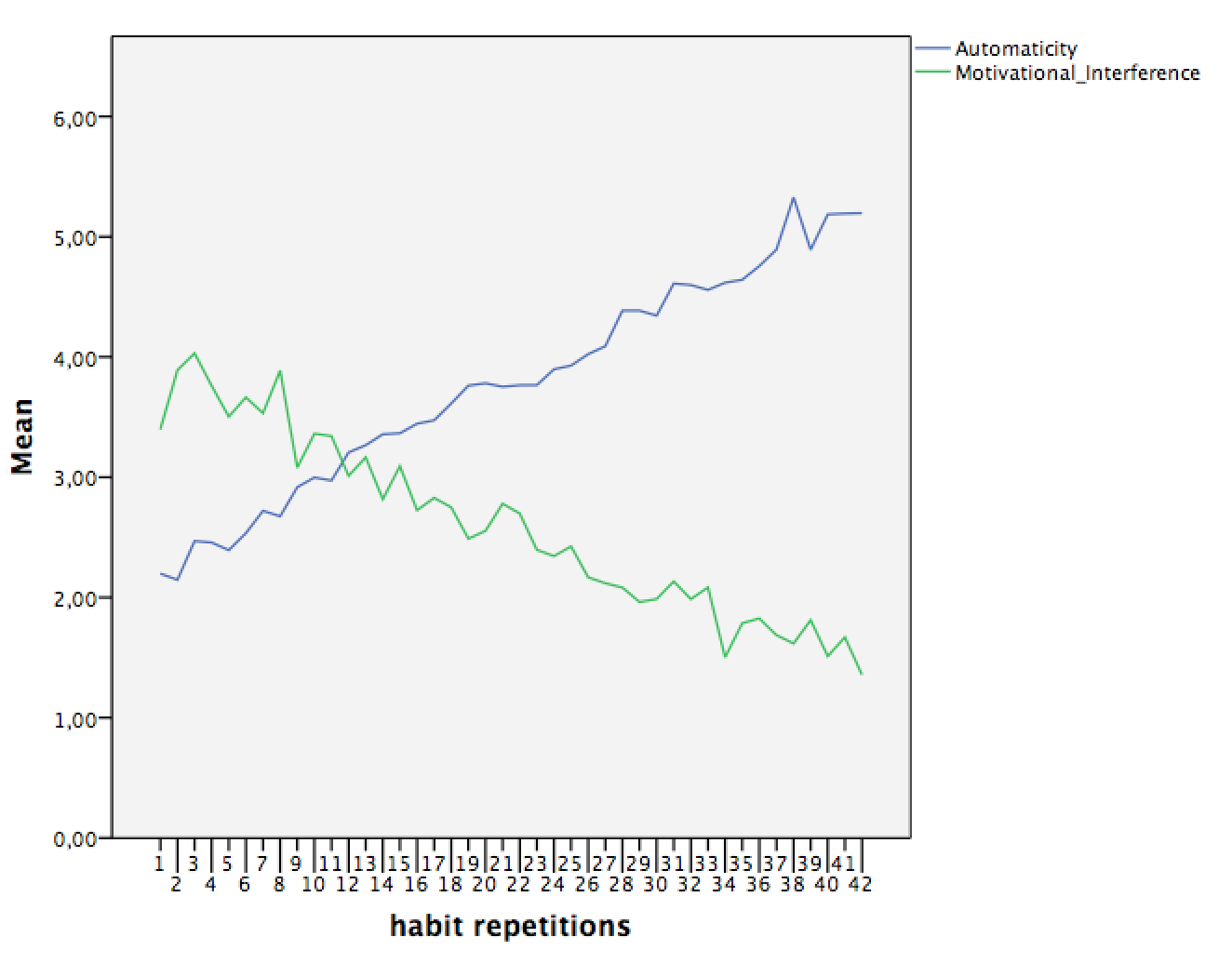
Features That Matter
The Reasons You’ll Love It
Guided Habit Definition
Grow helps you to define a clear cut habit which makes it more likely to stick to itAvoid Mistakes Early
Principles from motivational psychology are implemented in Grow’s habit definition process to ensure long term goal achievement.
Habit Stats
Grow shows you how strong your habit is by analyzing the data you feed itNumbers Don't Lie
Each of your habits has its own stats. Check out the example and analysis below!
Optimization
Grow can analyze your stats and show you weak spots you can improveOptimization Suggestions
For each weak spot, you can choose from different optimization suggestions. These are behavioral implementations that specifically improve one weak spot.
Typical Habit Development Stats
Day 4
Day 37
What Do The Stats Mean?
Automaticity is the most important statistic when it comes to building new habits. It’s the backbone of your habit and can be understood as habit strength. It’s weak in the beginning, but climbs up little by little over time. Starting values as low as 10% are usual, but so are strong increases after a few repetitions – like 55% after 37 days.
Motivational Resilience is your motivational shield against attacks from Netflix, your smartphone and the like. It increases with automaticity and the number of habit repetitions, but is also influenced by numerous other factors. A typical development of this statistic is a solid increase within the first month, resulting in the phenomenon that you will perform your habit very focussed and with a good mood. Remember doing difficult homework for a subject you hate? Thats how performing a task with low motivational resilience feels like. How does it feel to play your favorite game with 100% focus? Thats how performing a task with high motivational resilience feels.
Goal Attainment is the degree to which you reach the goal of a habit repetition. Like reading 5 pages, repeating 50 words in Spanish or running 5 kilometers. You should score >90% here from the beginning. If you don’t you set your habit repetition goal too high and should adjust. This statistic is for controlling proper habit execution.
Context Stability describes how stable the environment is in which you perform your habit. This is the physical place you are in during the habit performance, but also every other aspect of the situation like the drink you have, the people around you, the fact that your smartphone is in flight mode etc. The more stable the context is, the stronger your habit will become. Context stability, like goal attainment, should be high at all times. In the beginning, however, context stability might be low as your new habit needs a little time to fit into your day and really settle. Even though you define your context specifically in the habit definition process, let it a little space and don’t be too rigid in the beginning. It will fall into place automatically over time, you’ll see.
Motivational Value is a statistic that shows you how useful, important and intrinsically rewarding your habit is to yourself. It is common that the stronger a habit becomes, the more fun it is to perform, resulting in a higher intrinsic value. This is shown in the sample stats: The initial motivational value score is solid, indicating that this habit is important and somewhat fun. The consistent repetitions over 37 days increased this value even more. However, this statistic can be a warning signal: If this value is consistently low, you should ask yourself why you are doing it in the first place. Is it really for yourself or to match your parents’/ spouse’s/ friends’ expectations? A habit with a very low motivational value to begin with will be hard to build. It’s possible, but be prepared for a grind.
Flow feels good. When time flies, when you are challenged, but not overwhelmed, know exactly what you have to do to reach your goal and are fully focussed, you are probably in a flow state. As your habit becomes stronger, your experience during the habit will become more ‘flowy’.
Self Efficacy measures your belief in your ability to perform the habit despite unfavorable external circumstances. This score typically increases over time as you prove yourself with every successful habit repetition that you can actually stick to it (plus it gets easier with every repetition). Henry Ford was right when he said: “Whether you think you can or you can’t – you are right.”. Build this belief by showing yourself that you can stick to your new habit – especially in the first days.
The Creator





